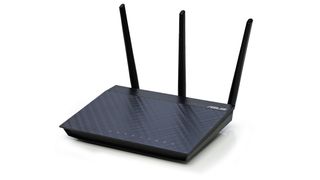FCC exploring super wireless networks, but some are resisting
Tech giants take sides

A political showdown over public broadband could be brewing, with the tech industry's biggest companies lining up on opposing sides.
The Federal Communications Commission (FCC) wants to "create super Wi-Fi networks across the country," according to a report from the Washington Post. But that takes the commission's intentions a little too far.
It would be more accurate to say the agency wants to make room for this kind of network to exist by handing over a more powerful slice of the wireless spectrum to the public.
Companies such as Google and Microsoft support the proposal, thinking the plan "would spark an explosion of innovation," according the the Post.
But others like AT&T, T-Mobile, Verizon Wireless, Intel and Qualcomm are against the idea, and all sent a letter to the FCC last month denouncing the plan.
One nation, under Wi-Fi
The Post's piece spoke of free Wi-Fi networks that cover large areas, available in most urban cities and many rural places. The signal would be so strong that it could support causal use of the internet for the public and allow users to make cellphone calls using the network as well.
The signal for a super Wi-Fi network would have to be beefed up from home versions to be able to penetrate concrete, travel longer distances and get around obstacles like trees and buildings.
Get daily insight, inspiration and deals in your inbox
Get the hottest deals available in your inbox plus news, reviews, opinion, analysis and more from the TechRadar team.
Achieving this kind of public network is not a question of technology, but one of space. Right now, there isn't enough room on the available wireless spectrum to accommodate this souped-up signal for most of the country.
You down with FCC?
This all feeds into a larger initiative set in motion by the FCC in late 2012. The commission is planning to buy back wireless spectrum from TV broadcasters in a new type of "incentive auctions" set for sometime in 2014.
The FCC plans to buy bands from broadcasters and shuffle those around for licensed and unlicensed use for more advanced wireless technology.
"The FCC's incentive auction proposal ... would unleash substantial spectrum for licensed uses like 4G LTE," a FCC spokesman told TechRadar.
"It would also free up unlicensed spectrum for uses including, but not limited to, next generation Wi-Fi. As the demand for mobile broadband continues to grow rapidly, we need to free up significant amounts of spectrum for commercial use, and both licensed and unlicensed spectrum must be part of the solution."
So, some of the spectrum will go back up for sale as licensed spectrum to companies like AT&T, T-Mobile and other carriers to improve those own networks. But the FCC also wants to carve out some unlicensed space, which would make room for this kind of super-strong public Wi-Fi.
But there will be a lot of uncertainty surrounding the creation of this public network: Broadcasters who currently own the spectrum may not feel like selling it back to the FCC. National carriers may also succeed in their lobbying efforts and gobble up the rest of this spectrum for licensed use.
Also, the FCC isn't offering to build the super Wi-Fi network itself, its just making room for it to exist. So, if this type of network is to come to fruition, someone is going to have to step up and build it.
But if these types of networks are built around the country, people could save money by canceling their cellphone and internet subscriptions, and just rely on public Wi-Fi to make calls and connect to the web.
Hmm, makes you wonder why mobile phone providers are so against it? Guess a free version of your own service is hard to compete against.
Most Popular



